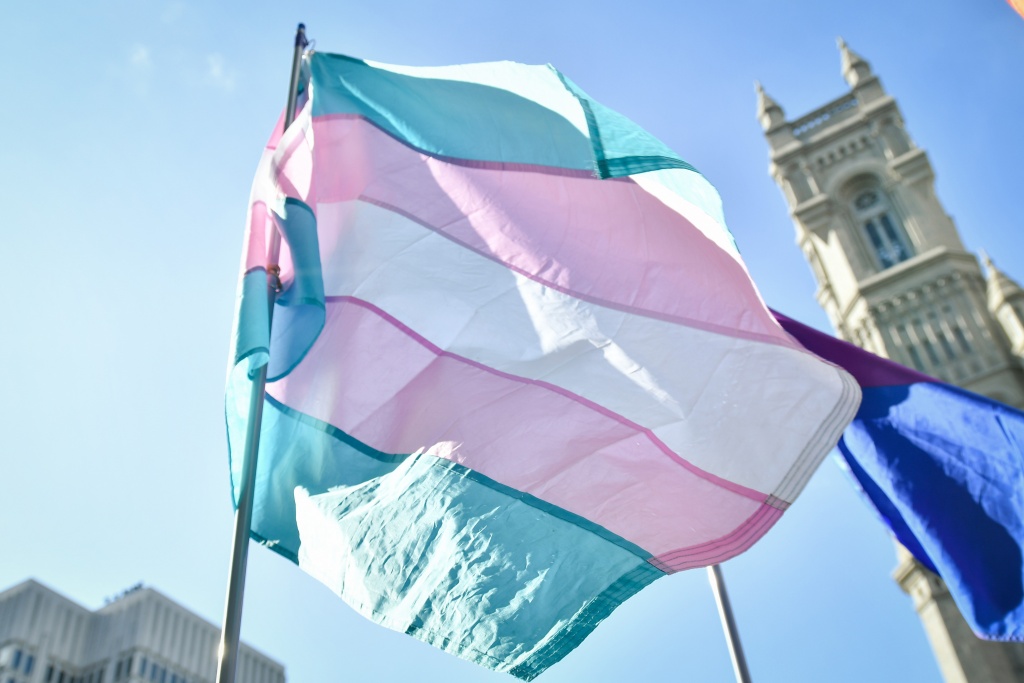A transwoman of color who grew up in foster care, Nia Clark, struggled to have her identity affirmed as a kid.
Various foster parents instructed her to hide her identity in public, rolled eyes at her clothing choices and gave ultimatums between housing and identifying as a woman. Her first foster mom placed her in a mental institution for six months.
“I was in the system for 14 years in 15 different placements in two states,” said Clark, 36, a Boston native. “In that time, it’s just not always safe to be out.”
Clark, now a national trainer and consultant on LGBTQ relations based in Los Angeles, will be the keynote speaker at the final event in Philadelphia Family Pride’s Spring 2019 Speaker Series on June 20. Taking place at University of the Sciences, Clark will speak about her experience growing up in foster care and educate others involved in the child welfare system on how to provide more welcoming environments for LGBTQ youth and families.
Local LGBTQ organizations that provide youth services, including Mazzoni Center, Galaei and Attic Youth Center, will attend to connect participants with services.
The five-part speaker series, sponsored by the Office of LGBT Affairs, began in February. The program is meant to elevate the voices of LGBTQ youth in the foster care system, encourage expansion of services for queer foster families and explore best practices within the sector, said Leigh Braden, event organizer and Philadelphia Family Pride board member.
“It’s not really just about training. There have to be policies in place to back up the training that’s being offered,” said Braden, also a social worker. “There have to be true systemic changes. Staff involved in the systems have to be willing and able to be out and be in positions of leadership and to be helping to make big decisions.”
Braden’s own experience as a foster parent alongside her wife inspired her to pen the plans for the speaker series. The couple has fostered LGBTQ-identifying kids who have struggled in the foster care system.
“For LGBTQ youth in our child welfare system, it’s very much like rolling the dice,” Braden said. “If you are lucky, you’ll end up with a good case manager and that person can make a huge difference in your life. … There are a lot of foster homes that say, ‘Look, I don’t care if you’re gay, but just don’t be gay in my house,’ but that is not affirming.”
Almost 400,000 youth across the U.S. are in foster care and members of the LGBTQ youth are overrepresented among the population, though available data is limited, according to a report from the Human Rights Campaign. The organization cites a recent study in Los Angeles that determined the percentage of LGBTQ youth in foster care is up to two times larger than those living outside the system. A 2014 study in Los Angeles also found LGBTQ youth go through a higher number of home placements than their non-LGBTQ peers.
LGBTQ youth in foster care often experience bias and discrimination, the Human Rights Campaign states. A survey of LGBTQ youth in out-of-home care in New York City found 78 percent were removed or ran away from foster placements after facing hostility toward their identities, 70 percent reported physical violence in group homes and 100 percent indicated receiving verbal harassment in group homes.
Discrimination in the child welfare system also affects queer people and couples looking to foster or adopt, Clark said, including when agencies display heteronormative posters and information and staff responds negatively to potential LGBTQ parents.
“If you’re walking into an environment and it doesn’t look very inviting, is it likely that you’re going to want to continue in the process, already having this fear about the myths and stereotypes that the general population has about LGBTQ adults and children?” Clark added.
State-licensed child welfare agencies in 10 states, including Virginia, Texas and Oklahoma, can refuse to place children with LGBTQ people and same-sex couples if it conflicts with the organization’s religious beliefs, according to the independent data nonprofit Movement Advancement Project.
In March 2018, Philadelphia officials stopped referring foster-care children to Catholic Social Services, a Catholic foster care agency, after reports indicated the agency wouldn’t place children with same-sex couples. The Third Circuit Court of Appeals upheld the decision this April.
After the speaker series concludes, Braden said Philadelphia Family Pride and partner organizations intend to use participant feedback to inform policy proposals and changes concerning Pennsylvania’s child welfare system.
Clark hopes event attendees will walk away with a greater sense of empathy and understand how the information will help them better to do their jobs, she said.
“It will help you to better serve your population,” Clark added. “It will help you to better communicate with young people engaging in this work. If your ultimate goal is to reduce some of these negative outcomes and to get young people to a place where they do foresee a positive future for themselves, then the work starts now.”
Photo by Kelly Burkhardt
